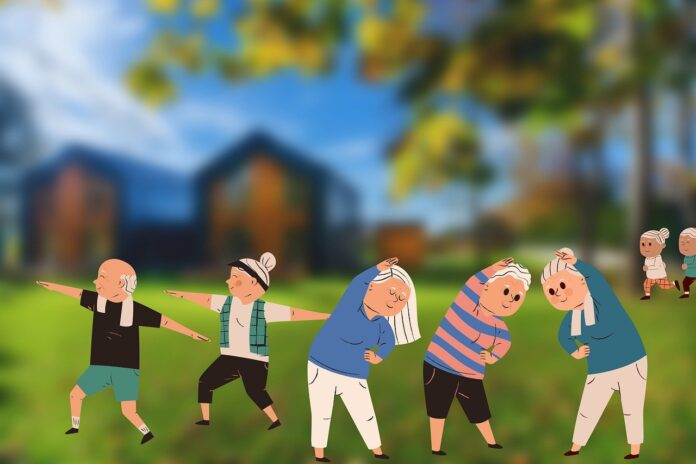Table of Contents
Key Takeaways
- Understand the importance of nutrition, exercise, and mental well-being for seniors.
- Explore helpful advice for staying healthy as you age.
- Learn about the benefits of social engagement and preventative health practices.
The Importance of Nutrition
Proper nutrition is paramount for seniors to maintain energy levels and overall health. Diets rich in fruits, vegetables, lean proteins, and whole grains provide essential nutrients. For example, including various vitamins and minerals can support immune function and bone health. Adequate hydration is also critical; water aids in digestion, nutrient absorption, and maintaining healthy skin. You can visit this resource for more comprehensive information on senior living and health tips. Nutrition is crucial in managing chronic conditions like diabetes, heart disease, and osteoporosis. A balanced diet can help seniors enhance their quality of life and independence. Seeking guidance from healthcare professionals is crucial in developing personalized nutrition plans that address specific health requirements. Consuming frequent smaller meals can help keep energy levels stable and avoid feelings of sluggishness. Adding fiber-rich foods, like fruits, vegetables, and whole grains, can enhance digestive health, a common worry as we age.
Incorporating Regular Exercise
Regular exercise helps seniors maintain muscle mass, balance, and cardiovascular health. Activities like brisk walking, swimming, and yoga can be both enjoyable and beneficial. Engaging in resistance training exercises two or more days a week is also helpful for muscle strength and bone density. Tailoring exercise routines to individual capabilities can prevent injuries and ensure consistency. Group exercises or community fitness programs can also provide social interaction, making workouts more engaging and less of a chore. Simple activities like gardening, dancing, or playing with grandchildren can contribute to an active lifestyle. Conversely, stretching routines can enhance flexibility and lower the chance of falls, a frequent worry for older adults.
Maintaining Mental Well-being
Activities such as puzzles, reading, and social interactions can keep the mind sharp. Additionally, meditation and mindfulness can reduce stress and improve mental clarity. Seniors can benefit from lifelong learning opportunities like attending workshops or taking up new hobbies. Participating in creative tasks like painting, gardening, or playing a musical instrument can give a feeling of purpose and accomplishment. It’s important to address mental health issues like depression or anxiety promptly. Getting help from mental health professionals or joining support groups can help. Staying socially active and engaged can also play a significant role in maintaining mental well-being. Regularly participating in social activities helps to stimulate the brain and can delay cognitive decline. Whether it’s shared meals, book clubs, or even digital meet-ups with family and friends, meaningful connections play a pivotal role in mental health.
Benefits of Social Engagement
Participating in social events can significantly improve the overall well-being of elderly individuals. Engaging in social activities can alleviate feelings of loneliness and depression. Joining clubs, volunteering, or staying connected with family and friends can make a big difference. Building a solid social network can provide emotional support and foster a sense of belonging. Participating in community events or group activities can provide opportunities for making new friends and staying mentally active. Seniors who engage socially tend to have better cognitive function and overall health. Healthier relationships can reduce stress and create greater happiness and fulfillment. Therefore, making time for social interactions is crucial to a healthy lifestyle. Simple phone calls, video chats, or socially-distanced meet-ups can provide critical emotional benefits.
Preventative Health Practices
Regularly scheduling health check-ups and screenings is crucial for early identification and control of health problems. Immunizations, eye exams, and dental check-ups should be addressed. Routine visits to healthcare providers can significantly reduce the risk of chronic diseases. Preventative care can include vaccines for flu, pneumonia, and shingles, which are critical for senior health.
Preventative health practices also include monitoring blood pressure, cholesterol levels, and other critical health metrics. Staying informed about one’s health status can help make proactive decisions and seek timely medical intervention. A personal health diary can track symptoms, medications, and doctor’s advice. Always discuss preventative measures with healthcare providers to tailor them to individual health needs.
Practical Tips for Healthy Living
- Stay Hydrated: Drink adequate amounts of water all day long. Water aids in digestion and keeps the skin healthy. It’s easy to forget to drink water, so keep a water bottle nearby as a reminder.
- Get Enough Sleep: Aim for 7-8 hours of quality sleep each night. Good sleep hygiene, such as a regular bedtime routine and a comfortable environment, can improve sleep quality.
- Stay Informed: Follow the latest health recommendations from reliable sources. It includes attending healthcare appointments and understanding changes in your body as you age.
- Be Active: Engage in activities that you enjoy and can sustain. Whether walking, gardening, or dancing, staying active is vital to physical and mental health.
- Ask for Help: Don’t hesitate to seek healthcare professionals or trusted friends and family assistance. Staying proactive about health issues can prevent minor concerns from becoming major problems.
By integrating these helpful suggestions into their everyday schedules, elderly individuals can live healthier and more satisfying lifestyles. Remember that small, consistent changes can significantly affect overall well-being. The focus should be on creating a balanced lifestyle encompassing nutrition, exercise, mental health, social interaction, and preventative care.






















